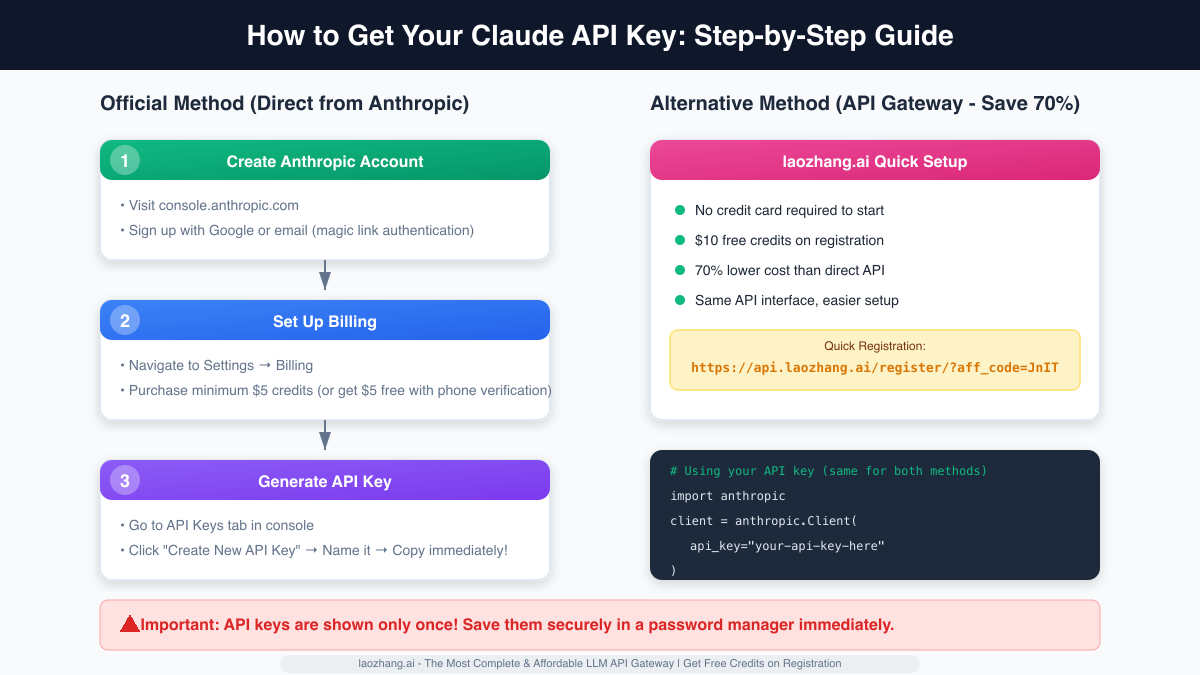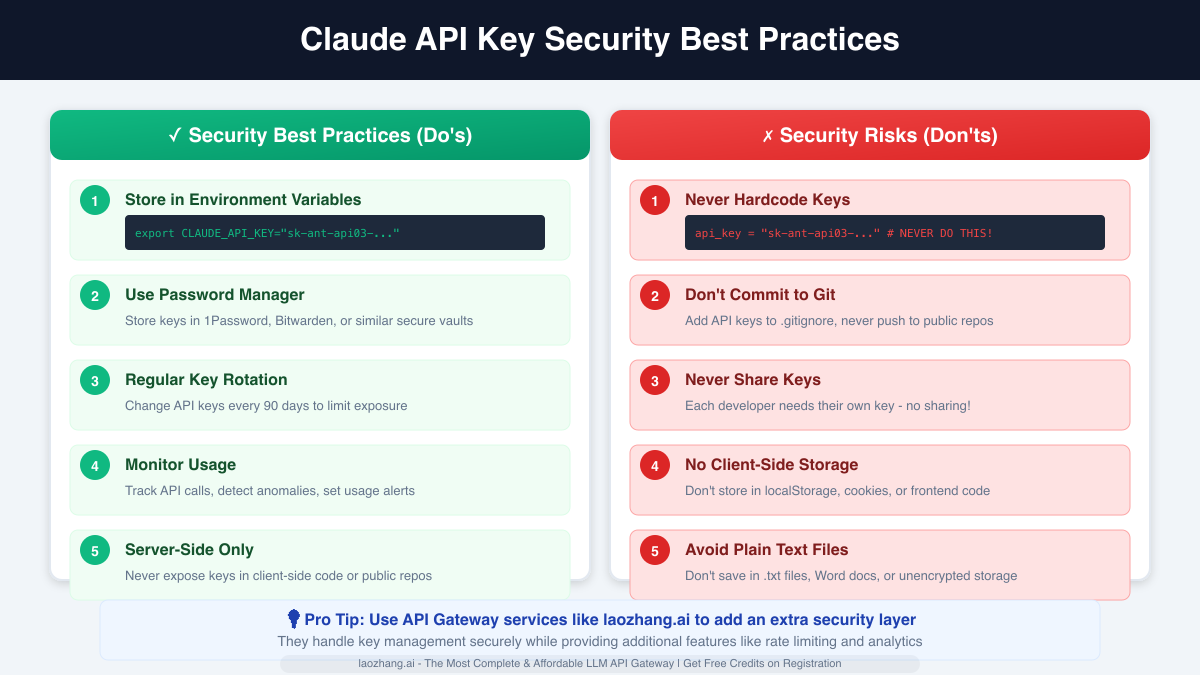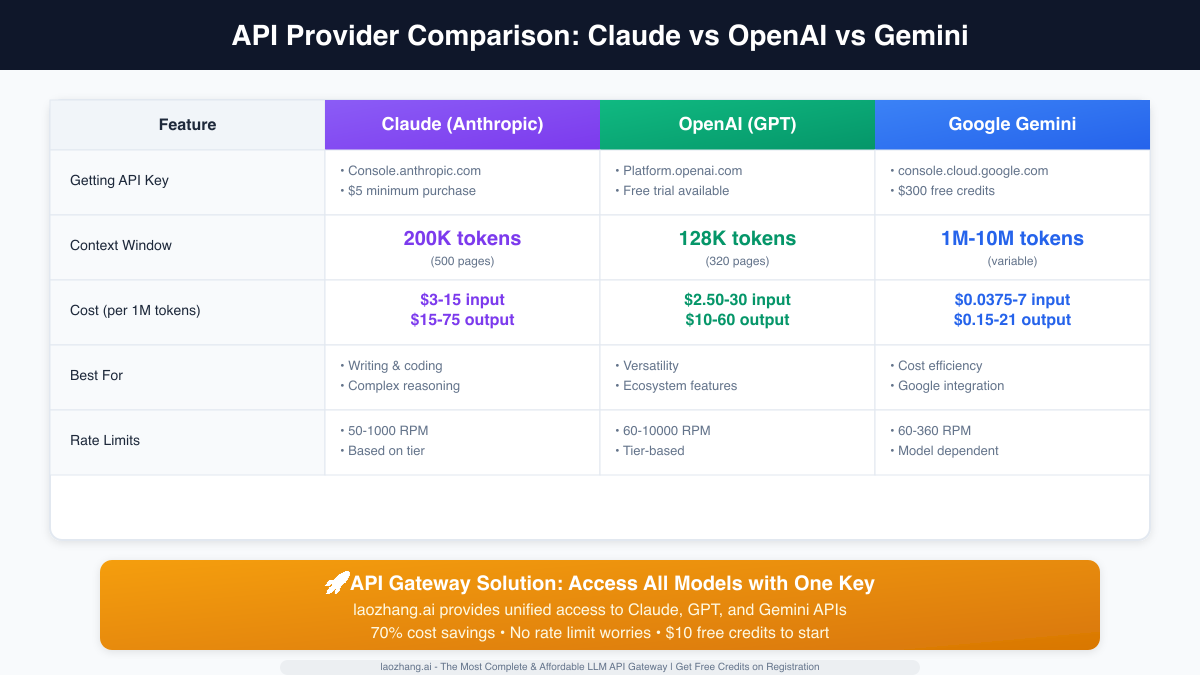The journey to harnessing Claude's powerful AI capabilities begins with a single critical step: obtaining and properly managing your API key. In 2025, as Anthropic's Claude continues to lead in coding excellence and complex reasoning tasks, understanding the nuances of API key management has become essential for developers, businesses, and AI enthusiasts alike. This comprehensive guide demystifies the entire process, from your first registration to advanced security practices that protect your investment.
Recent developments have transformed the Claude API landscape. With the May 2025 launch of Claude 4, featuring groundbreaking performance on coding benchmarks (72.5% on SWE-bench), and the introduction of enhanced security features, the importance of proper API key management has never been greater. Whether you're a solo developer experimenting with AI or an enterprise architect designing scalable systems, this guide provides the roadmap to secure, efficient Claude API access.
Understanding Claude API Keys: More Than Just Access Tokens
A Claude API key serves as your unique identifier and authentication credential for accessing Anthropic's powerful language models. Unlike simple passwords, these keys carry significant responsibility—they directly link to your billing account, determine your usage limits, and provide access to some of the most advanced AI capabilities available today. Each key follows a specific format, typically beginning with "sk-ant-api03-" followed by a unique string of characters.
The significance of proper API key management extends beyond mere access control. Your API key represents a direct line to computational resources that can generate substantial costs if misused. A compromised key could lead to unauthorized usage, unexpected charges, and potential data exposure. Moreover, with Claude's enhanced capabilities in 2025, including the new computer use tools and extended 200,000 token context windows, the value—and risk—associated with each key has increased dramatically.
Understanding the ecosystem surrounding Claude API keys also means recognizing the different access methods available. While many guides focus solely on direct access through Anthropic's console, the reality is more nuanced. Alternative pathways, including API gateway services, cloud provider integrations, and managed solutions, each offer unique advantages that can significantly impact your development workflow and bottom line.
Getting Your Claude API Key: A Step-by-Step Journey

The traditional path to obtaining a Claude API key begins at console.anthropic.com, where Anthropic has streamlined the onboarding process while maintaining robust security measures. The journey starts with account creation, a process that eschews traditional username-password combinations in favor of modern "magic link" authentication. This approach, while initially surprising to some users, reflects Anthropic's commitment to security-first design principles.
After creating your account, the next critical step involves setting up billing. Anthropic requires a minimum $5 credit purchase to activate API access—a reasonable barrier that helps prevent abuse while remaining accessible to individual developers. For those hesitant about upfront costs, it's worth noting that new accounts with phone verification often receive $5 in free credits, effectively removing the initial financial barrier for experimentation.
The actual key generation process occurs within the API Keys section of your console. Here, Anthropic provides a clean interface for creating, naming, and managing multiple keys. The moment of key creation is crucial—the full key is displayed only once, never to be shown again. This security measure, while sometimes inconvenient, protects against unauthorized access through console breaches. Smart developers immediately copy their new key to a secure password manager, treating it with the same care as cryptocurrency private keys or banking credentials.
However, the traditional route isn't the only path to Claude API access. API gateway services like laozhang.ai have emerged as compelling alternatives, offering simplified setup processes that bypass many traditional hurdles. With laozhang.ai, developers can register quickly, receive $10 in free credits without credit card requirements, and immediately access not just Claude but multiple AI models through a unified interface. This approach particularly benefits developers who want to experiment across different models or those facing regional restrictions with direct Anthropic access.
Security Best Practices: Protecting Your Digital Keys

The security of your Claude API key directly impacts your project's integrity and financial exposure. Modern development practices demand a multi-layered approach to API key security, beginning with the fundamental principle: never hardcode keys in your source code. This seemingly obvious rule remains the most violated security practice, with GitHub's secret scanning regularly detecting thousands of exposed API keys in public repositories.
Environment variables represent the first line of defense in secure key management. By storing your Claude API key in environment variables, you separate sensitive credentials from your codebase, enabling secure deployment across different environments. The implementation is straightforward—set your key as an environment variable like CLAUDE_API_KEY and reference it in your code through language-specific environment access methods. This approach also facilitates key rotation, as updating the environment variable automatically propagates changes without code modifications.
For production environments, the security requirements escalate significantly. Password managers transition from convenient tools to essential infrastructure. Solutions like 1Password, Bitwarden, or AWS Secrets Manager provide encrypted storage, access controls, and audit trails. These tools enable secure key sharing among team members without exposing the actual credentials, a critical capability for collaborative development environments.
Key rotation emerges as an often-overlooked but crucial security practice. Regular key rotation—typically every 90 days—limits the potential damage from undetected breaches. Anthropic's console makes rotation straightforward: generate a new key, update your applications, then revoke the old key. This process, while requiring coordination, significantly reduces long-term exposure risks.
The rise of server-side proxy architectures represents an evolution in API key security. Rather than embedding keys in client applications—a practice that guarantees eventual compromise—modern architectures route requests through secure backend services. This approach not only protects your keys but enables additional security layers like request validation, rate limiting, and usage monitoring. Services like laozhang.ai excel in this model, providing secure proxy endpoints that eliminate client-side key exposure while adding valuable features like automatic failover and request optimization.
Troubleshooting Common Issues: When Things Go Wrong
Even with careful setup and management, API key issues inevitably arise. Understanding common problems and their solutions can mean the difference between quick resolution and extended downtime. The most frequent issue developers encounter is the dreaded 401 Authentication Error, which typically indicates an invalid, expired, or incorrectly formatted API key. The solution often lies in verifying the key's exact format—ensuring no extra spaces or characters have been inadvertently included during copying.
Rate limiting represents another significant challenge, particularly for applications experiencing rapid growth. Claude's tiered rate limits—ranging from 50 RPM for new accounts to 1,000+ RPM for established users—can create bottlenecks during peak usage. When encountering 429 Rate Limit errors, the immediate response should involve implementing exponential backoff strategies. However, the long-term solution often requires architectural changes: request queuing, caching frequently used responses, or upgrading to higher tiers.
A particularly frustrating issue involves regional restrictions and payment processing failures. Some developers find themselves unable to complete the billing setup due to payment processor restrictions or regional limitations. In these cases, alternative access methods become essential. API gateway services like laozhang.ai provide a legitimate workaround, offering access to Claude's capabilities without the geographic or payment method restrictions that might block direct access.
Key revocation accidents—where developers inadvertently delete or revoke active keys—create immediate operational crises. Anthropic's console doesn't provide key recovery options for security reasons, making prevention crucial. Best practices include maintaining multiple active keys for critical applications, implementing key usage monitoring to detect anomalies, and establishing clear procedures for key management within development teams.
Comparing API Providers: Making Informed Choices

The AI API landscape in 2025 presents developers with unprecedented choices, each with distinct advantages and trade-offs. Claude's position in this ecosystem reflects its strengths in specific domains—particularly coding and complex reasoning—while competing platforms like OpenAI's GPT series and Google's Gemini offer their own unique value propositions. Understanding these differences proves crucial for making informed decisions about API investments.
Claude's 200,000 token context window stands as a significant differentiator, enabling processing of entire codebases, lengthy documents, or extended conversations without context loss. This capability, combined with Claude's superior performance on coding benchmarks, makes it the preferred choice for software development tasks, technical documentation, and complex analytical work. The recent addition of computer use tools further extends Claude's capabilities into automation and testing scenarios previously requiring human intervention.
OpenAI's ecosystem offers unmatched breadth, with GPT-4 variants covering everything from cost-effective GPT-4-mini to the powerful GPT-4-turbo. OpenAI's first-mover advantage translates into superior tooling, broader integration options, and a massive developer community. For applications requiring image generation, voice synthesis, or established third-party integrations, OpenAI often provides the path of least resistance.
Google's Gemini disrupts traditional pricing models with its aggressive cost structure—often 10-20x cheaper than comparable Claude or GPT models. The trade-off comes in consistency and specialized capabilities. While Gemini excels at general-purpose tasks and offers impressive context windows (up to 10 million tokens in some variants), it may lag in specialized domains like code generation or nuanced writing tasks where Claude excels.
The emergence of unified API gateways represents a paradigm shift in how developers approach model selection. Rather than committing to a single provider, services like laozhang.ai enable dynamic model selection based on task requirements, cost constraints, or availability. This flexibility proves particularly valuable for production applications where reliability and cost optimization matter more than platform loyalty. With laozhang.ai's 70% cost reduction compared to direct API access, developers can experiment with multiple models while maintaining budget control.
Advanced Integration Strategies: Beyond Basic Implementation
Successfully integrating Claude's API extends beyond simple request-response cycles. Modern applications demand sophisticated approaches that balance performance, cost, and reliability. The key lies in understanding Claude's strengths and architecting systems that maximize these advantages while mitigating limitations.
Implementing intelligent request routing represents a crucial optimization strategy. Not every query requires Claude's full capabilities—simple classifications or extractions might work perfectly with cheaper models. By implementing a routing layer that analyzes query complexity and directs requests to appropriate models, applications can reduce costs by 60-80% while maintaining quality. This approach becomes even more powerful when combined with caching strategies that store responses for frequently asked questions or repeated analyses.
Context management emerges as another critical consideration. While Claude's 200,000 token context window enables impressive capabilities, it also introduces challenges. Loading extensive context for every request wastes tokens and increases latency. Successful implementations use dynamic context loading, including only relevant information for each query. This might involve semantic search over document repositories, intelligent summarization of previous conversations, or structured data extraction that maintains essential information while reducing token usage.
Error handling and resilience deserve special attention in production environments. Network failures, API outages, and rate limit issues are not possibilities but certainties at scale. Robust implementations include circuit breakers that prevent cascade failures, request queuing systems that smooth traffic spikes, and fallback strategies that maintain service availability even when primary APIs face issues. API gateway services often include these features by default, providing enterprise-grade reliability without the implementation complexity.
The Future of API Access: Trends and Predictions
The trajectory of AI API development points toward increased accessibility, enhanced capabilities, and more sophisticated integration options. As we progress through 2025, several trends are reshaping how developers interact with AI services. The standardization of API interfaces across providers reduces switching costs and enables true multi-model strategies. Emerging protocols for model capability discovery and automatic routing promise to make model selection transparent to application code.
Security enhancements continue to evolve, with biometric authentication, hardware security modules, and zero-knowledge proof systems entering the API security landscape. These technologies promise to make API keys more secure while reducing the friction of key management. Anthropic's recent implementation of organization-level controls and audit logging represents early steps in this direction.
Cost structures are becoming more sophisticated, moving beyond simple per-token pricing to value-based models that account for output quality, task complexity, and business impact. This evolution benefits both providers and consumers, aligning incentives around successful outcomes rather than raw usage volumes. API gateways play a crucial role in this transition, aggregating demand to negotiate better rates while providing value-added services that justify their margins.
Taking Action: Your Next Steps
The path to effective Claude API usage begins with a single step but requires ongoing attention to security, optimization, and best practices. Whether you choose direct access through Anthropic's console or leverage gateway services for enhanced features and cost savings, the principles remain constant: secure your keys, monitor your usage, and continuously optimize your implementation.
For developers ready to begin their Claude journey, the choice between direct access and gateway services often comes down to specific needs. Direct access provides maximum control and immediate updates to new features. Gateway services like laozhang.ai offer simplified setup, significant cost savings, and additional features that can accelerate development. Many successful implementations use both approaches, leveraging direct access for development and testing while routing production traffic through optimized gateways.
The investment in proper API key management and security practices pays dividends beyond mere cost savings. It builds a foundation for scalable, secure AI integration that can grow with your needs. As AI capabilities continue to expand and costs continue to fall, those who master these fundamentals today position themselves to capitalize on tomorrow's opportunities.
Start your Claude API journey today. Whether through direct registration at Anthropic or immediate access via laozhang.ai (https://api.laozhang.ai/register/?aff_code=JnIT ), the tools and knowledge exist to transform your applications with advanced AI capabilities. The future of software development increasingly relies on AI augmentation—ensure you're prepared to be part of it.
